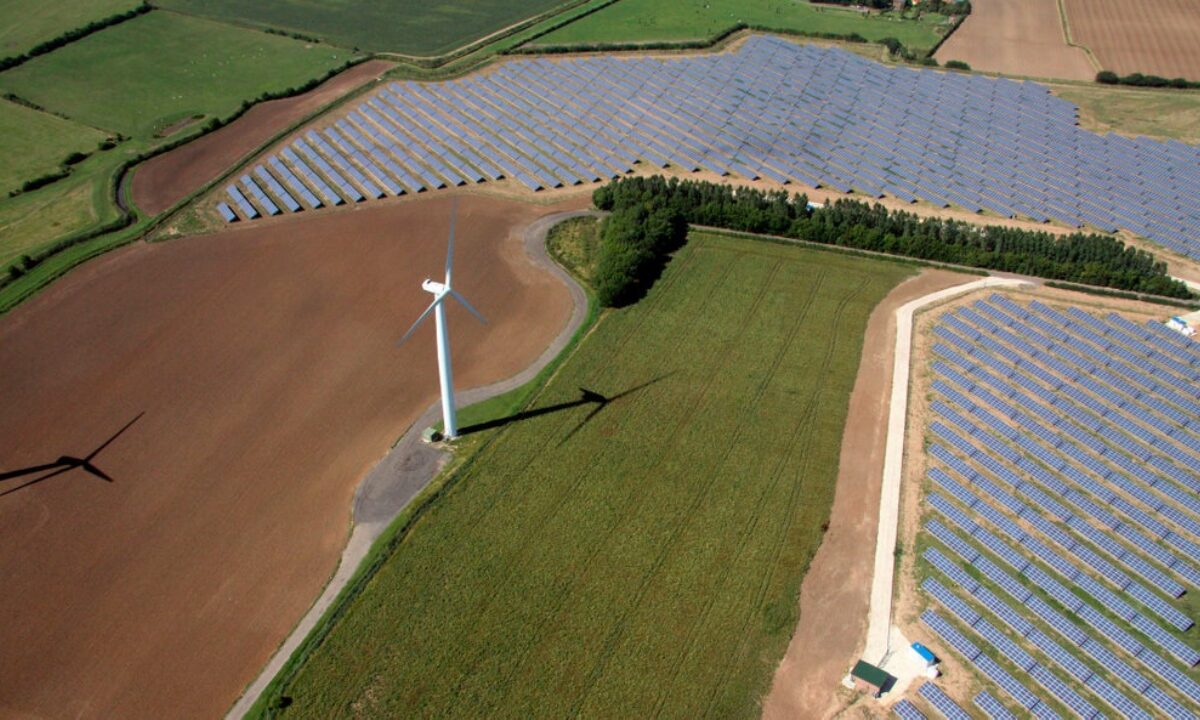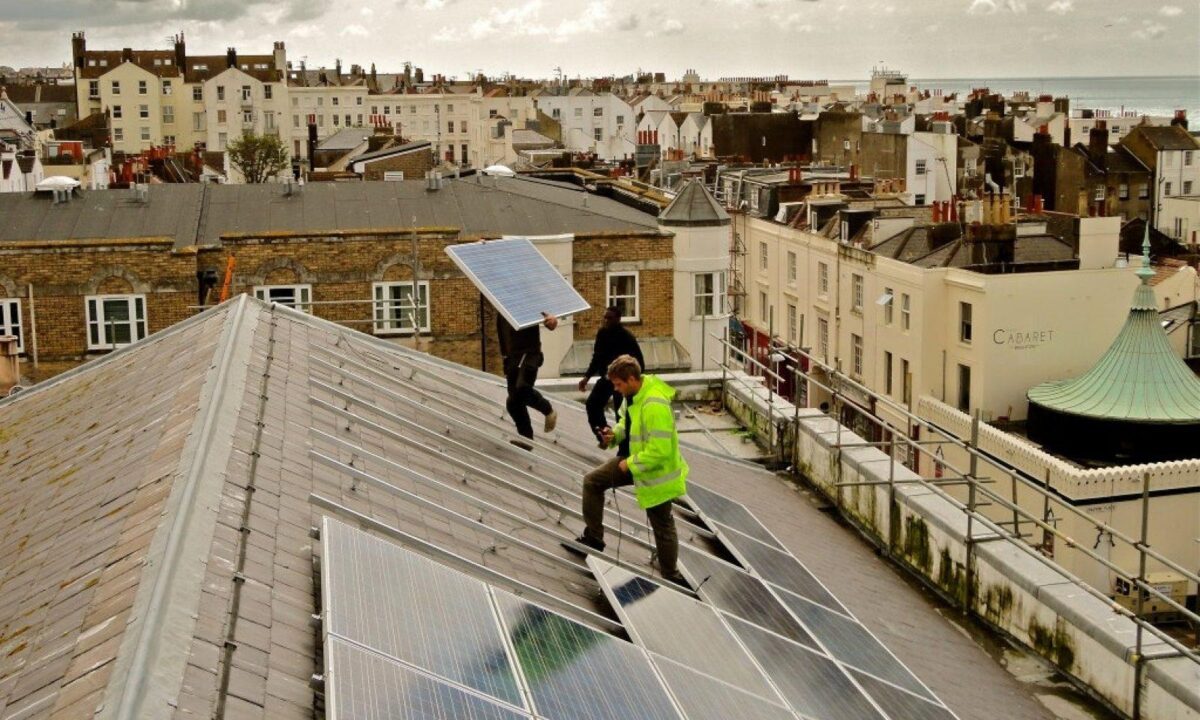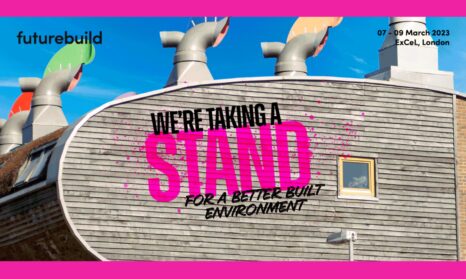Net-zero homes and sustainable communities will be key to tackling the Department for Energy Security and Net Zero’s daunting to-do list
Grant Shapps could be forgiven for thinking he has been handed the hardest job in Whitehall.
As secretary of state for the Department of Energy Security and Net Zero (how will this be abbreviated? For now, let’s go with ‘DESNZ’), the new government department created by prime minister Rishi Sunak on Wednesday, he is charged with “securing the UK’s energy supply… bringing down energy bills, and reducing inflation”, while delivering the network infrastructure and domestic energy production needed to “ensure UK meets its legally binding net-zero commitments” and coordinating net-zero objectives across government.

Government cannot control global energy prices, a post-covid inflation surge, or war in Europe, but it can insulate UK homes – some of the leakiest in Europe – and empower local authorities to ensure that new homes are net-zero carbon and fossil-fuel free.
A tall order for anyone, and a daunting to-do list on your first day in a new job. Fortunately, if he can achieve the third of his department’s “priority outcomes” – to “improve the energy efficiency of UK homes, businesses, and public sector buildings”, he will make significant progress against those bigger problems.
Government cannot control global energy prices, a post-covid inflation surge, or war in Europe, but it can insulate UK homes – some of the leakiest in Europe – and empower local authorities to ensure that new homes are net-zero carbon and fossil-fuel free.
Another advantage for Mr Shapps is the government-commissioned Review of Net Zero. Written by former energy minister Chris Skidmore, it makes 129 recommendations to seize what he calls the “historic opportunity” to reap the economic benefits of decarbonisation.
Key recommendations that could accelerate the decarbonisation of our towns and cities concern planning reform, unlocking infrastructure, and the role of local government.

Most welcome is the call to reform planning “at a local and national level to place net zero at its heart”. From our work with forward-thinking planning authorities, we know it is possible, today, for the system to respond to this challenge.
Most welcome is the call to reform planning “at a local and national level to place net zero at its heart”. From our work with forward-thinking planning authorities, we know it is possible, today, for the system to respond to this challenge. We supported Warwick District Council on the development of its net-zero carbon development plan document.
And alongside Etude and Currie & Brown, we provided support to Greater Cambridge Shared Planning, developing a net-zero carbon evidence base for its local plan, shaping how Greater Cambridge will develop over the next 20 years. Our spatial carbon modelling work enabled it to decide where to allow new development in the city, and what kind of policies the local plan should use to enable the transition to net zero.
To unlock this potential across the country, government should bring forward its consultation on environmental aspects of the national planning policy framework. It urgently needs to give explicit guidance to planning inspectors to iron out the inconsistencies between their treatment of net-zero planning policies. This could be given weight through the Levelling-up and Regeneration Bill by strengthening its proposed climate duty for plan makers, as theBetter Planning Coalition has suggested. And the new ‘national development management policies’ in the bill should be used to establish a level playing field that encourages the highest environmental standards, in line with our national carbon budget.
Developers are already building homes, today, that are net-zero in use, and which sequester carbon through their construction due to their use of bio-based materials. These have a higher environmental performance than homes to be built under the Future Homes Standard – which proposes that no new homes will be built with a gas boiler from 2025, and for all homes sold to be EPC C by 2033.

A key barrier to delivering net-zero infrastructure is finance. An exciting proposal in the Net Zero Review is to create ‘trailblazers’ aiming to reach net zero by 2030. Rather than just one, as the Review suggests, these should be established in a range of places, be they neighbourhoods, business districts, or whole communities, spreading the risk and trialling different kinds of partnership working and funding models that can unlock private finance and create new income streams. Policy changes to unlock the adoption of community-led, net-zero carbon-compatible energy and heating systems, will be vital.
We need well-resourced, skilled, and empowered local authorities to attract the investment that will shape their communities. The proposal to place a ‘statutory duty’ on local authorities to take account of net-zero targets is of central importance and would influence every decision they make. A simplified funding landscape for local authorities would also be welcome, but greater resources to develop skills and capacity will be essential.
The UK is hugely reliant on gas boilers to heat our leaky homes. But rather than leading the rapid transition to green energy that we need, in 2021 the UK installed over 1.7 million gas boilers, compared to 67,000 heat pumps.

Finally, we need the people to deliver on the ground. An upskilled workforce, trained to save energy and install renewables on every building job, will create a much-needed boost to the economy while cutting carbon.
The UK is hugely reliant on gas boilers to heat our leaky homes. But rather than leading the rapid transition to green energy that we need, in 2021 the UK installed over 1.7 million gas boilers, compared to 67,000 heat pumps.
Not only is that an extra 1.7 million households locked into fossil fuels, and who may face having to expensively retrofit their property in a few years’ time, that’s also 1.7 million households locked into rising prices and volatile energy markets.
If Grant Shapps’ new department is truly to “focus teams on the issues that will build a better future for our children and grandchildren”, as promised by Mr Sunak this week, then there is no time to waste.
Originally published on the Futurebuild blog.
Image credits: Benjamin Elliott via Unsplash, APS UK and Ruth Knight via Climate Visuals, and Trish Gant via Alamy.








